Fleurs du Mal Magazine


Or see the index
Beautiful in the Mouth was selected by Thomas Lux as winner of BOA’s A. Poulin, Jr., Poetry Prize and it debuted in the top ten on the Poetry Foundation bestseller list.
 In it, Kuipers combines frank sensuality with sincere emotion, yielding poems that travel from New York City to the American West on a exploration of love and loss.
In it, Kuipers combines frank sensuality with sincere emotion, yielding poems that travel from New York City to the American West on a exploration of love and loss.
Set against both literal and figurative geography—the empty bedroom of a dead child, a clear-cut hillside outside a logging town—these poems examine how loss transforms our most unwilling landscapes.
Thomas Lux selected this debut collection as winner of BOA’s A. Poulin, Jr., Poetry Prize.
In his foreword he writes, “I was immediately struck by the boldness of imagination, the strange cadences, and wild music of these poems.
We should be glad that young poets like Keetje Kuipers are making their voices heard not by tearing up the old language but by making the old language new.”
Keetje Kuipers, a native of the Northwest, earned her BA at Swarthmore College and MFA at the University of Oregon. A Stegner Fellow at Stanford University, she divides her time between Stanford and Missoula, Montana.
Beautiful in the Mouth
(A. Poulin, Jr. New Poets of America)
by Keetje Kuipers (Author),
Thomas Lux (Foreword)
Paperback
2010
Publisher: BOA Editions Ltd.; First Edition (April 1, 2010)
Language: English
Paperback: 96 pages
ISBN-10: 1934414336
ISBN-13: 978-1934414330
$17.00
• fleursdumal.nl magazine
More in: #Modern Poetry Archive, - Book News, - Bookstores, Archive K-L, Archive K-L, Kuipers, Keetje

Rondel of Merciless Beauty
Your two great eyes will slay me suddenly;
Their beauty shakes me who was once serene;
Straight through my heart the wound is quick and keen.
Only your word will heal the injury
To my hurt heart, while yet the wound is clean –
Your two great eyes will slay me suddenly;
Their beauty shakes me who was once serene.
Upon my word, I tell you faithfully
Through life and after death you are my queen;
For with my death the whole truth shall be seen.
Your two great eyes will slay me suddenly;
Their beauty shakes me who was once serene;
Straight through my heart the wound is quick and keen.
Geoffrey Chaucer
(1343 – 1400)
Rondel of Merciless Beauty
• fleursdumal.nl magazine
More in: Archive C-D, Archive C-D, Geoffrey Chaucer
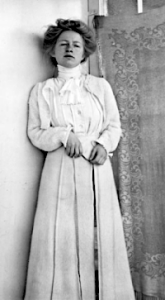
Skönhet
Vad är skönhet? Fråga alla själar –
skönhet är varje överflöd, varje glöd, varje överfyllnad och varje stort armod;
skönhet är att vara sommaren trogen och naken intill hösten;
skönhet är papegojans fjäderskrud eller solnedgången som bebådar storm;
skönhet är ett skarpt drag och ett eget tonfall: det är jag,
skönhet är en stor förlust och ett tigande sorgetåg,
skönhet är solfjäderns lätta slag som väcker ödets fläkt;
skönhet är att vara vällustig som rosen eller att förlåta allting för att solen skiner;
skönhet är korset munken valt eller pärlbandet damen får av sin älskare,
skönhet är icke den tunna såsen i vilken diktare servera sig själva,
skönhet är att föra krig och söka lycka,
skönhet är att tjäna högre makter.
Edith Södergran
(1892-1923)
Skönhet
• fleursdumal.nl magazine
More in: Archive S-T, Archive S-T, Södergran, Edith

Kunstenfestival Watou vindt plaats van 1 juli tot en met 3 september 2023 en krijgt de slagzin /kom.po’zi.ci.o:/ mee. Dertig kunstenaars en twintig dichters ‘componeren’ nieuw in situ werk.
Het kunstenfestival pakt dit jaar ook uit met enkele nieuwe locaties, een podcast met Jelle Van Riet en een poëziefietsroute met oorlogsgedichten.
Het startschot van het kunstenfestival werd gegeven met de lancering van een open call in de lente van 2022. 170 kunstenaars uit binnen- en buitenland stelden zich vorig jaar kandidaat voor Patchwwwork.
Een interdisciplinaire en internationale jury selecteerde dertig kunstenaars die in de zomer van 2022 in het dorp kampeerden. Ze gingen in dialoog met de inwoners, voelden het landschap en dompelden zich onder in het festival dat die zomer plaatsvond. Op basis van hun ervaringen, werkten ze projectvoorstellen uit voor nieuwe installaties. Uit deze voorstellen selecteerde de jury 19 projecten die te zien zijn op Kunstenfestival Watou 2023.

Deelnemende kunstenaars
Beatrijs Albers en Reggy Timmermans (BE) – Niels Albers (NL) – Funda Zeynep Ayguler (DE) – Iwert Bernakiewicz (BE) – Sven Boel (BE) – Cloé Decroix (FR) – Alexandra Dementieva (BE) – Niel de Vries (NL) – Griet Dobbels (BE) – Philippe Druez (BE) – Juls Gabs (UK) – Benoît Géhanne (FR) – Marilyne Grimmer (FR) – Marc Hamandjian (FR) – Nathalie Hunter (BE) – Maarten Inghels (BE) – Pierre Mertens (BE) – Charlotte Mumm (DE) – Öznur Özturk (BE) – Alain Platel en Berlinde De Bruyckere (BE) – Jiajia Qi (NL) – Henk Schut (NL) – Robert Ssempijja (UG) – Joris Vermassen (BE) – Koen Vanmechelen (BE) – Louisiana Van Onna (NL) – Wouter Vanderstede en Peter Simon (BE) – Various Artists – Esther Venrooij (NL) – ZONDERWERK (BE)
& Dichters
Alara Adilow (NL) – Anna Broeksma (NL) – Joost Decorte (BE) – Lotte Dodion (BE) – Radna Fabias (NL) – Marie Ginet (FR) – Max Greyson (BE) – Luuk Gruwez (BE) – Maarten Inghels (BE) – Ilya Kaminsky (US/UKR) – Mustafa Kör (BE) – Caroline Lamarche (BE) – Marije Langelaar (NL) – Delphine Lecompte (BE) – Lisette Lombé (BE) – Gerry Loose (UK) – Nisrine Mbarki (NL) – Tijl Nuyts (BE) – Johanna Pas (BE) – Siel Verhanneman (BE)
Kunstenfestival Watou 2023
More on website:
https://www.kunstenfestivalwatou.be/
& https://www.poperinge.be/
• fleursdumal.nl magazine
More in: # Music Archive, #Modern Poetry Archive, *War Poetry Archive, AUDIO, CINEMA, RADIO & TV, DANCE & PERFORMANCE, Exhibition Archive, Land Art, THEATRE, Watou Kunstenfestival
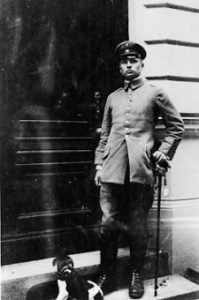
Von des Daseins körperlicher Schwere …
Von des Daseins körperlicher Schwere
Überfallen, bedrückt und tief gehemmt,
Dürstet mein Gemüt nach einer Leere.
Draußen haben blasse Abendmeere
Straßen trüb und traurig überschwemmt.
Und die Stadt sinkt wie verwest und grau
In den Schoß der mütterlichen Nacht.
Tief in meiner Seele weint und wacht
Die Erinnerung an eine Frau,
An ein Lied, ein Buch, an Sonne, Blau,
An viel Not, an manche Lust und Pracht.
Schwach durchzittert vom Geläut der Qual
Treibt mein Tag in eine ernste Stille.
Dunklen Himmels glanzlose Pupille
Starrt durchs Fenster hoffnungsblind und fahl.
Hans Ehrenbaum-Degele
(1889 – 1915)
Von des Daseins körperlicher Schwere …
• fleursdumal.nl magazine
More in: #Experimental Poetry Archive, *War Poetry Archive, - Archive Tombeau de la jeunesse, Archive E-F, Archive E-F, Expressionism, Modernisme
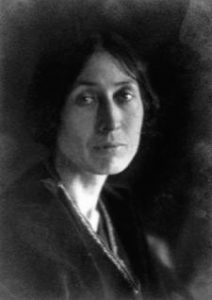
The Everlasting Return
It is dark… so dark, I remember the sun on Chios…
It is still… so still, I hear the beat of our paddles on the Aegean…
Ten times we had watched the moon
Rise like a thin white virgin out of the waters
And round into a full maternity…
For thrice ten moons we had touched no flesh
Save the man flesh on either hand
That was black and bitter and salt and scaled by the sea.
The Athenian boy sat on my left…
His hair was yellow as corn steeped in wine…
And on my right was Phildar the Carthaginian,
Grinning Phildar
With his mouth pulled taut as by reins from his black gapped teeth.
Many a whip had coiled about him
And his shoulders were rutted deep as wet ground under chariot wheels,
And his skin was red and tough as a bull’s hide cured in the sun.
He did not sing like the other slaves,
But when a big wind came up he screamed with it.
And always he looked out to sea,
Save when he tore at his fish ends
Or spat across me at the Greek boy, whose mouth was red and apart like an opened fruit.
We had rowed from dawn and the green galley hard at our stern.
She was green and squat and skulked close to the sea.
All day the tish of their paddles had tickled our ears,
And when night came on
And little naked stars dabbled in the water
And half the crouching moon
Slid over the silver belly of the sea thick-scaled with light,
We heard them singing at their oars…
We who had no breath for song.
There was no sound in our boat
Save the clingle of wrist chains
And the sobbing of the young Greek.
I cursed him that his hair blew in my mouth, tasting salt of the sea…
I cursed him that his oar kept ill time…
When he looked at me I cursed him again,
That his eyes were soft as a woman’s.
How long… since their last shell gouged our batteries?
How long… since we rose at aim with a sleuth moon astern?
(It was the damned green moon that nosed us out…
The moon that flushed our periscope till it shone like a silver flame…)
They loosed each man’s right hand
As the galley spent on our decks…
And amazed and bloodied we reared half up
And fought askew with the left hand shackled…
But a zigzag fire leapt in our sockets
And knotted our thews like string…
Our thews grown stiff as a crooked spine that would not straighten…
How long… since our gauges fell
And the sea shoved us under?
It is dark… so dark…
Darkness presses hairy-hot
Where three make crowded company…
And the rank steel smells….
It is still… so still…
I seem to hear the wind
On the dimpled face of the water fathoms above…
It was still… so still… we three that were left alive
Stared in each other’s faces…
But three make bitter company at one man’s bread…
And our hate grew sharp and bright as the moon’s edge in the water.
One grinned with his mouth awry from the long gapped teeth…
And one shivered and whined like a gull as the waves pawed us over…
But one struck with his hate in his hand…
After that I remember
Only the dead men’s oars that flapped in the sea…
The dead men’s oars that rattled and clicked like idiots’ tongues.
It is still… so still, with the jargon of engines quiet.
We three awaiting the crunch of the sea
Reach our hands in the dark and touch each other’s faces…
We three sheathing hate in our hearts…
But when hate shall have made its circuit,
Our bones will be loving company
Here in the sea’s den…
And one whimpers and cries on his God
And one sits sullenly
But both draw away from me…
For I am the pyre their memories burn on…
Like black flames leaping
Our fiery gestures light the walled-in darkness of the sea…
The sea that kneels above us…
And makes no sign.
Lola Ridge
(1873-1941)
The Everlasting Return
• fleursdumal.nl magazine
More in: Archive Q-R, Archive Q-R, Ridge, Lola
One of Library Journal’s “Thirty Amazing Poetry Titles for Spring 2014,” The Keys to the Jail asks the question of who is to blame for all we’ve lost, calling us to reexamine the harsh words of failed love, the aging of a once-beautiful body, even our own voracious desires.
 With daring leaps and unflinching observations, these richly textured lyrics travel from Montana’s great wildernesses to the ocean-fogged streets of San Francisco as they search out the heart that’s lost its way.
With daring leaps and unflinching observations, these richly textured lyrics travel from Montana’s great wildernesses to the ocean-fogged streets of San Francisco as they search out the heart that’s lost its way.
The Keys to the Jail asks the question of who is to blame for all we’ve lost, calling us to reexamine the harsh words of failed love, the aging of a once-beautiful body, even our own voracious desires.
Keetje Kuipers is a poet of daring leaps and unflinching observations, whose richly textured lyrics travel from Montana’s great wildernesses to the ocean-fogged streets of San Francisco as they search out the heart that’s lost its way.
(. . .) Shirtless
in the phosphorescent gloom of streetlamps,
they lie suspended. This is my one good
life—watching the exchange of embraces,
counting the faces assembled outside
the ice-cream shop, sweet tinge of urine by
the bridge above the tracks, broken bike lock
of the gay couple’s hands, desperate clapping
of dark pigeons—who will take it from me?
(. . .)
Dolores Park (fragment)
A former Wallace Stegner Fellow in Poetry, Keetje Kuipers’s debut collection, Beautiful in the Mouth, won the A. Poulin, Jr. Poetry Prize. She has been the Margery Davis Boyden Wilderness Writing Resident, and is currently an assistant professor at Auburn University.
Keetje Kuipers is a native of the Northwest. She earned her B.A. at Swarthmore College and her M.F.A. at the University of Oregon. She has been the recipient of a number of fellowships, including those from the Vermont Studio Center, Squaw Valley Community of Writers, and Oregon Literary Arts.
In 2007 Keetje completed her tenure as the Margery Davis Boyden Wilderness Writing Resident, which provided her with seven months of solitude in Oregon’s Rogue River Valley. She used her time there to complete work on her book, Beautiful in the Mouth, which was awarded the 2009 A. Poulin, Jr. Poetry Prize and was published in 2010 by BOA Editions. It contains poems previously published in Prairie Schooner, West Branch, Willow Springs, and AGNI, among others. You can also listen to her read her work—which has been nominated seven years in a row for the Pushcart Prize—at the online audio archive From the Fishouse. Keetje’s second book, The Keys to the Jail, is forthcoming from BOA Editions in the spring of 2014, and contains poems previously published in American Poetry Review, Jubilat, and the Indiana Review.
Keetje Kuipers was a Wallace Stegner Fellow at Stanford University from 2009-2011, and she was the Emerging Writing Lecturer at Gettysburg College from 2011-2012. Currently she is an Assistant Professor at Auburn University where she lives with her family and their dog, Bishop (named after Elizabeth, of course).
Keetje Kuipers
Title: The Keys to the Jail
Poems
Publisher: BOA Editions Ltd.
2014
Language: English
Paperback
96 pages
ISBN-10: 1938160266
ISBN-13: 978-1938160264
$17.00
• fleursdumal.nl magazine
More in: #Modern Poetry Archive, - Book News, - Bookstores, Archive K-L, Archive K-L, Kuipers, Keetje

The Ragged Wood
O hurry where by water among the trees
The delicate-stepping stag and his lady sigh,
When they have but looked upon their images –
Would none had ever loved but you and I!
Or have you heard that sliding silver-shoed
Pale silver-proud queen-woman of the sky,
When the sun looked out of his golden hood? –
O that none ever loved but you and I!
O hurry to the ragged wood, for there
I will drive all those lovers out and cry –
O my share of the world, O yellow hair!
No one has ever loved but you and I.
William Butler Yeats
(1865-1939)
The Ragged Wood
• fleursdumal.nl magazine
More in: Archive Y-Z, Archive Y-Z, Yeats, William Butler
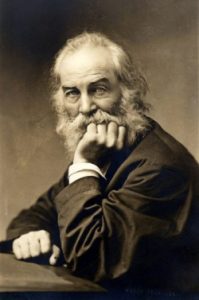
A Noiseless Patient Spider
A noiseless patient spider,
I mark’d where on a little promontory it stood isolated,
Mark’d how to explore the vacant vast surrounding,
It launch’d forth filament, filament, filament, out of itself,
Ever unreeling them, ever tirelessly speeding them.
And you O my soul where you stand,
Surrounded, detached, in measureless oceans of space,
Ceaselessly musing, venturing, throwing, seeking the spheres to connect them,
Till the bridge you will need be form’d, till the ductile anchor hold,
Till the gossamer thread you fling catch somewhere, O my soul.
Walt Whitman
(1819 – 1892)
A Noiseless Patient Spider
• fleursdumal.nl magazine
More in: Archive W-X, Archive W-X, Whitman, Walt

Nachtbild
Heil dem Lebend’gen, der mit voller Hand
Sich zu den Armen und Verlassenen wendet,
Der seinen Trost aus kühlen Bronnen spendet.
Heil dem Propheten in der Sonne Brand!
Dranmor.
Nacht bedeckt den kleinen Friedhof.
In dem dumpfen Leichenhause
Flackert zitternd einer Lampe
Rothe Flamme. – Heiser knarren
Jene Thüren, die das Leben
Sorgsam von dem Tode trennen.
Meine Hand hat sichern Druckes
Sie geöffnet; wie im Schlafe
Aber wandelnd, dacht’ ich nimmer,
Sie zu schließen. –
Leise, wie mit Geisterstimmen
Klagt der Wind dort in den Weiden,
Pochet zürnend an die Fenster,
Flüstert mit den kranken Blumen,
Die aus der Verwesung sprießen,
Treibet mit den Wetterhähnen
Auf dem Thurm sein ächzend Spiel,
Flieget wimmernd um das Häuschen,
Daß die Fenster ängstlich klirren
Und die Flamme furchsam zuckt …
Jener bangen rothen Flamme
Schwankend Leuchten schien ein Winken,
Dem ich folgte, traumbefangen,
Und nun steh’ ich in dem engen
Schaurig-öden, kahlen Stübchen, –
Ich allein bei einem Todten.
––––––––––––––––––––
Auf zwei Schragen und zwei Brettern
Ruht der Todte, alt und häßlich,
Nur in Lumpen eingehüllet;
Ihm zu Haupte brennt die Lampe,
Deren zuckend rothe Lichter
Öfter wie ein Lächeln gleiten
Über die erstarrten Züge
Des verkommenen Gesellen.
Eine harmlos gläub’ge Hand
Suchte seine wildgeballten,
Nun im Tod gekrampften Hände
Fromm zu falten, wie bei Jenen,
Deren Leben schloß ein Beten. –
Auf zwei Schragen und zwei Brettern
Ruht der Todte, still und einsam,
Schläft den letzten, traumlos, leeren,
Ewigen Schlaf…..
Noch am Morgen jagten Bosheit,
Breit Behagen – dem das Elend
Unverständlich – Rohheit, Kaltsinn
Ruhlos ihn von Thür zu Thüre,
Und des Abends wankte jener
Unglücksel’ge, wie betrunken,
Durch die Straßen. Hunger weinte
Aus den kranken, trock’nen Augen,
Aber Trotz zuckt um die Lippen,
Als die Buben, die ihm folgten,
Näher trabten, um das Unthier
Zu beschauen, das man eben
Auf Befehl der weisen, milden
Obrigkeit von dannen hetzet.
Vagabund! so klingt es lachend
Aus dem Munde wilder Kinder;
Vagabund! so klingt es höhnend
Aus dem Mund der klugen Alten;
Vagabund! schreit roh der Büttel;
Vagabund! so ächzt er selber,
Weitertaumelnd. – – –
An der Straße, bei der Grenze
Todesmüde sinkt er nieder.
Fern verklinget das Gejohle
Jener tugendsamen Meute,
Die ihn hetzte und befriedigt
Von dem Schauspiel heim jetzt kehret
Zu dem Herde. –
Dunkel senket schon die Nacht sich
Nieder auf die stille Erde,
Und es senket auch die Nacht sich
Nieder auf die dunkle Seele
Des Gehetzten, des Verfluchten;
Über seinem armen Antlitz,
Grau, wie Spinngeweb’ gebreitet,
Liegen Elend und Verzweiflung.
Stumm umklammert er den Grenzstein
Und starrt finster nach dem einz’gen
Trüben Sterne, der herabschaut,
Auf sein Elend. –
Und es lösen von dem Steine
Los sich seine feuchten Hände
Und sie zucken, zittern, haschen
Nach den dunklen Nebelschatten.
Wild empor sind sie gerichtet,
Eine stumme, fürchterliche,
Himmelstürmend, crasse Drohung,
Wild empor noch schreit der Augen
Gottverneinend herbe Klage.
Aber plötzlich sinken nieder
Seine Arme; es verlöschen
Seiner Blicke letzte Blitze.
Von dem schwarzen Himmel knisternd
Fällt der einz’ge Stern hernieder,
Und ein Windstoß, zaust die Haare
Einer Leiche …..
–––––––––––––––––
War es wie bei jenen Geiern,
Die da wittern, wo das Aas liegt,
Das sie nährt sammt ihren Jungen?
War es des Geschäftes Eifer,
Der ihn trieb, Dich aufzusuchen?
Denn es fand Dich, der berufen,
Sich zu nähren von den Todten,
An dem Grenzstein fand Dich, einsam,
Kalt und todt der – Todtengräber.
Mit den rauhen, derben Händen
Trug er selbst Dich in das Stübchen,
Das bestimmt ist für die Leichen
Jener, die am Wege sterben;
Für die Gott- und Weltverlass’nen
Ist dies Stübchen, ist der Schragen. –
Morgen aber scharret ein Dich,
Dort im letzten Friedhofwinkel,
Einsam, wie er Dich gefunden,
Für gar kargen Lohn der Alte,
Er allein kann Dich verwerthen:
Tod ist Brot ihm! –
Und doch trug auf seinen Händen
Dich ein Mensch zum Ort des Friedens,
Und es schlug ein Menschenherz
Einmal doch an Deinem Herzen…..
Schaurig Mitleid: Dich verspottend
Noch im Tode, giebt er Dir nun,
Was im Leben Dir wohl nimmer
Ist geworden: Licht und Ruhe
Dach und Hände, die Dich nimmer
Von sich stoßen! ….
–––––––––––––––––––
Nacht bedeckt den kleinen Friedhof,
In dem dumpfen Leichenhause
Flackert ängstlich knisternd, zuckend,
Jener Lampe rothe Flamme,
Deren Schwanken mir ein Winken,
Dem ich folgte traumbefangen –
Und noch steh’ ich in dem engen
Schaurig-öden, kahlen Stübchen, –
Ich alleine bei dem Todten!
Ada Christen
(1839 – 1901)
Nachtbild
1878
• fleursdumal.nl magazine
More in: Archive C-D, Archive C-D, Christen, Ada
De poëzie van Ruth Lasters is aards, wil aards zijn.
 In een weloverwogen syntaxis, met een voorkeur voor het onverwachte perspectief en een warm hart voor de zwakkeren, componeert ze versbeelden die afwijkend zijn en energiek, muzikaal en beeldend.
In een weloverwogen syntaxis, met een voorkeur voor het onverwachte perspectief en een warm hart voor de zwakkeren, componeert ze versbeelden die afwijkend zijn en energiek, muzikaal en beeldend.
Tijgerbrood gaat over het verlangen om voor altijd toevlucht te kunnen zoeken, op te lossen in pure vorm, in woordenloosheid. De auteur is haar vroegere compartimenten kwijt.
De dichter, leerkracht, kindervrije vrouw, partner, pacifist, klimaattobber en kunstliefhebber werden samengekneed tot één wezen dat haar hoop, bekommernissen en angsten meer en meer durft te erkennen als die van iedereen.
Als brood leven is, zoals men zegt, is tijgerbrood een leven in camouflagevel om als observator ongehinderd de stem te kunnen opvangen van de hele maatschappij.
Auteur(s) : Ruth Lasters
Uitgeverij: Uitgeverij G.A. Van Oorschot
ISBN: 9789028231030
Taal: Nederlands
Uitvoering: Paperback
Aantal pagina’s: 80
Verschijningsdatum: februari 2023
Afmetingen: 220 x 140 x 10 mm.
Paperback 19.50
• fleursdumal.nl magazine
More in: #Editors Choice Archiv, - Book News, - Bookstores, Archive K-L, Archive K-L
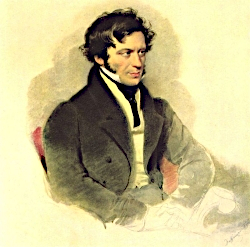
Nichts
Zwischen nichts wissen und Nichts wissen –
In diese zwei Teile ist die Menschheit zerrissen.
Aber Nichts wissen
Ist fruchtlos bis zum Tode beflissen,
Indeß nichts wissen
Ein gottgefälliges Ruhekissen.
Franz Seraphicus Grillparzer
(Wien 1791 – 1872)
Nichts
• fleursdumal.nl magazine
More in: # Classic Poetry Archive, Archive G-H, Archive G-H, Grillparzer, Franz
Thank you for reading Fleurs du Mal - magazine for art & literature